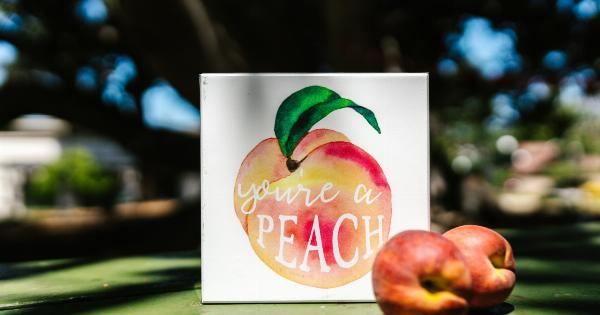Fruits are very important for our health. They help keep our bodies hydrated, provide us with essential vitamins and minerals, and contribute to our daily fiber intake. However, some fruits can cause bloating and gas, which can be very uncomfortable.
In this article, we will look at the top fruits that cause bloating and gas and also explore why this happens.
1. Apples
Apples are known for their high fiber content. While fiber is great for the digestive system, when too much is consumed, it can cause bloating and gas.
Additionally, apples contain fructose, which can be difficult for some people to digest, especially if consumed in large amounts. This can lead to bloating and gas, especially in people with fructose intolerance.
2. Mangoes
Mangoes are delicious and nutritious, but they are also high in fiber and contain a lot of natural sugar. These two components can contribute to bloating and gas. Also, mangoes contain sorbitol, which can cause digestive problems in some people.
Sorbitol is not well-absorbed by the body and can ferment in the colon, leading to bloating and gas.
3. Watermelon
Watermelon is another fruit that is high in natural sugar. It also has a high water content, which can cause bloating when consumed in large quantities.
Additionally, watermelon contains fructose, which, as mentioned earlier, can cause digestive problems in some people.
4. Pears
Pears are high in fiber and contain sorbitol, just like mangoes. Sorbitol is not well-absorbed by the body and can cause bloating and gas. Additionally, pears also contain fructose, which can lead to digestive problems in some people.
5. Apricots
Apricots are high in fiber and contain sorbitol, like pears and mangoes. They are also high in natural sugar, which can contribute to bloating.
Additionally, apricots contain a lot of beta-carotene, which can cause the skin to turn yellowish-orange if consumed excessively, but this is not harmful.
6. Prunes
Prunes are well-known for their laxative effects. This is because they are high in fiber and contain sorbitol, just like other fruits on this list. This combination can cause diarrhea, which can lead to bloating and gas.
It is important to consume prunes in moderation to avoid these side effects.
7. Cherries
Cherries are high in fiber and contain natural sugar, which can contribute to bloating. Additionally, cherries contain sorbitol, just like other fruits on this list, which can cause digestive problems in some people.
8. Guava
Guava is a tropical fruit that is high in fiber and contains natural sugar. It also contains sorbitol, which can cause digestive problems.
Guava has a unique taste and is a great addition to various recipes, but it is important to consume it in moderation to avoid bloating and gas.
9. Pineapple
Pineapple is a delicious tropical fruit that is high in fiber and natural sugar. It also contains bromelain, an enzyme that can help with digestion. However, bromelain can also cause bloating and gas, especially in high doses.
It is important to consume pineapple in moderation to avoid these side effects.
10. Grapes
Grapes are high in natural sugar and contain a lot of water, which can cause bloating. Additionally, grapes contain sorbitol, which can cause digestive problems.
Grapes are a great addition to salads and snacks, but it is important to consume them in moderation to avoid bloating and gas.
Why do some fruits cause bloating and gas?
Fruits are high in fiber, which is great for the digestive system. However, when too much fiber is consumed, it can be difficult for the body to break down and can lead to bloating and gas.
Additionally, some fruits contain natural sugar, which can also contribute to bloating. Finally, some fruits contain sorbitol, a sugar alcohol that is not well-absorbed by the body and can ferment in the colon, causing bloating and gas.
Conclusion
Fruits are an essential part of a healthy diet. They provide us with essential vitamins and minerals, and contribute to our daily fiber intake. However, some fruits can cause bloating and gas, especially if consumed in large amounts.
It is important to consume these fruits in moderation and listen to your body to avoid any digestive problems.





























